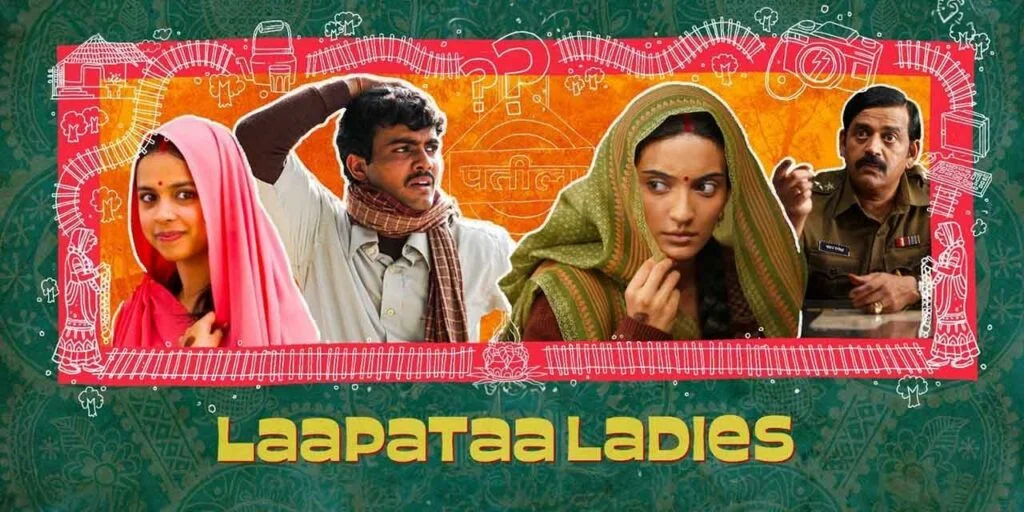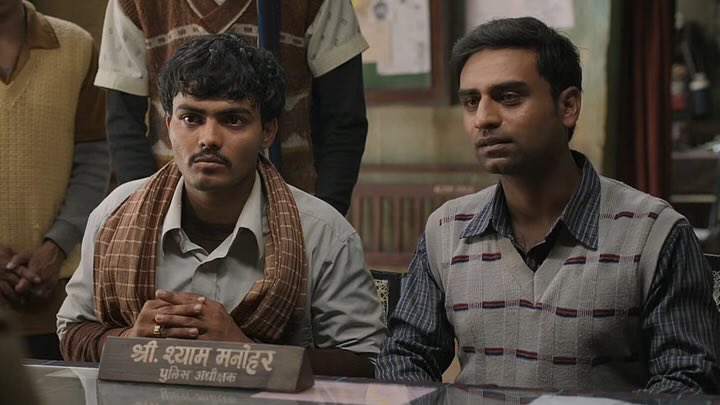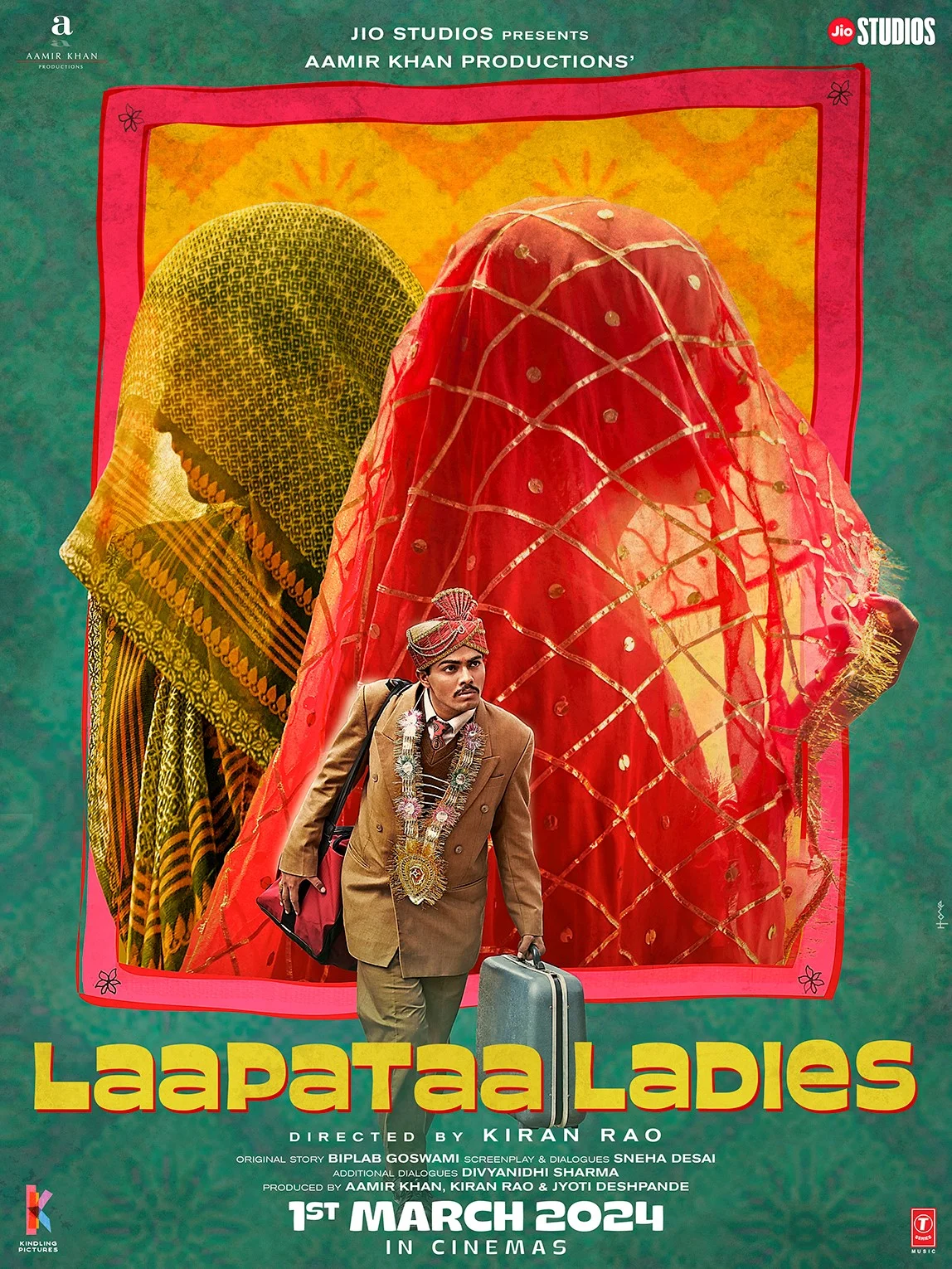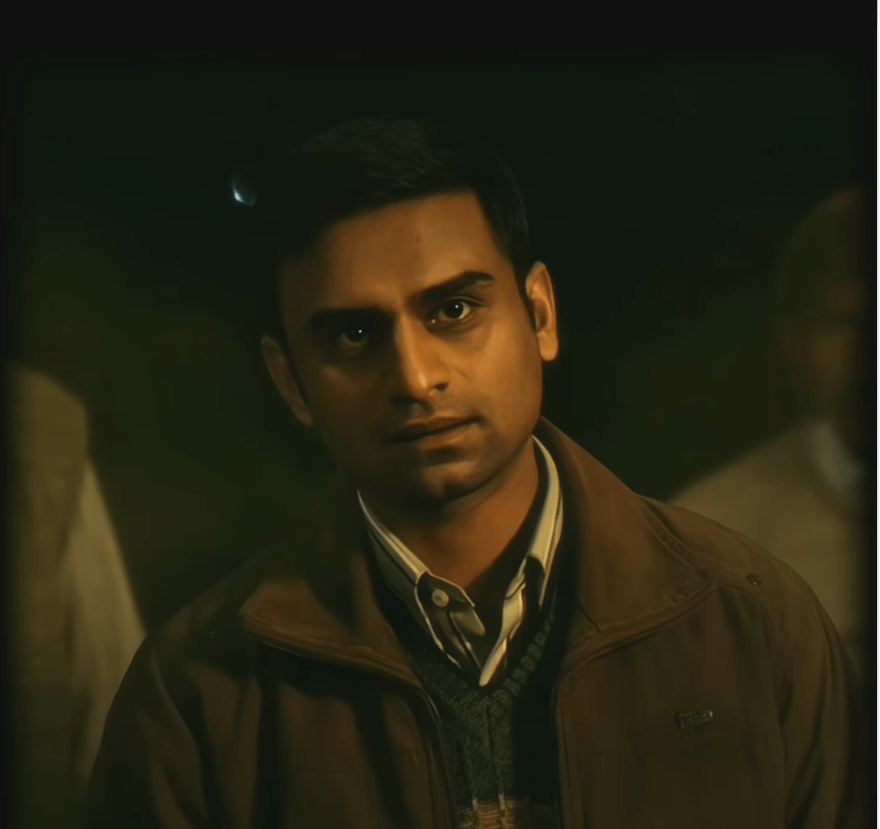The sensitive and progressive representation of masculinity in Daood Hussain’s portrayal of Gunjan in the highly praised film Laapataa Ladies has garnered widespread acclaim. His caring and encouraging demeanor goes against traditional masculine norms, nudging Deepak (played by Sparsh Shrivastava) to remind Jaya (played by Pratibha Ranta) to continue writing to and visiting them as she pursues studies in organic farming in Dehradun. Also, he quickly arranges for flyers to be printed to help locate Deepak’s lost bride, Phool (played by Nitanshi Goel) at Jaya’s request. Gunjan shows a genuine feminist philosophy by prioritising the welfare and empowerment of the women in his circle.
Gunjan shows a genuine feminist philosophy by prioritising the welfare and empowerment of the women in his circle.
Actor Daood Hussain, who plays Gunjan, was born in Nainital and currently resides in Mumbai, has been involved in theatre from a very young age. We talked to him about the slow but sure evolution of male characters in modern Indian films and how they potentially impact social viewpoints amid fanfare.
Redefining masculinity in Indian cinema
Gunjan in Laapataa Ladies marks a significant shift in the portrayal of masculinity in Indian films. Hussain explains, ‘Gunjan represents a man who is sensitive, vulnerable, responsible, and willing to express his emotions—a departure from the traditionally stoic image of male characters.’ This compassionate, supportive, and empathetic character is atypical for Indian cinema, challenging longstanding stereotypes.
In the 1970s and 1980s, Bollywood’s portrayal of male characters was dominated by the much-discussed “angry young man” archetype, epitomised by defiance and dissatisfaction with societal norms. This image, deeply rooted in the era’s cultural context, painted men as rebellious and emotionally distant. Recent films such as Kabir Singh and Animal still depict male characters lacking supportive and loving interactions with women. In contrast, films like Newton (2017) and Satyaprem Ki Katha (2023) present a new wave of male characters who show care and support towards women, despite being part of mainstream films being made in India in the Hindi language.
The male characters show a gradual change from old-fashioned patriarchal beliefs in Hindi-language cinema, starting with films such as Rab Ne Bana Di Jodi (2008) and still present in films like Rocky Aur Rani Kii Prem Kahaani (2023). As Daood Hussain notes, contemporary Indian cinema is evolving, offering more nuanced and empathetic portrayals of masculinity. ‘The role of men in Indian films is evolving to be more inclusive and diverse. The masculine archetypes of the past are giving way to more nuanced portrayals of men that are representative of modern society. Men are no longer just portrayed in a heroic image but also as fathers, brothers, and friends,’ says Hussain.
The role of men in Indian films is evolving to be more inclusive and diverse. The masculine archetypes of the past are giving way to more nuanced portrayals of men that are representative of modern society.
Daood Hussain aka “Gunjan”, actor.
This transformation is not just about breaking stereotypes but also about offering a more realistic depiction of men and how they express love, not just romantically, like in Laapataa Ladies producer Aamir Khan’s 2016 film Dangal. By portraying men who embrace vulnerability and emotional openness, films like Laapataa Ladies are influencing societal perceptions and encouraging a more balanced view of gender roles. This evolution in cinema reflects broader changes in societal attitudes, providing a platform for more humane and wishfully everyday male characters.
Hussain’s approach and the impact on society
Playing a character like Gunjan required a different approach from Hussain. Originally selected for the role of Pradeep, Hussain was shifted to play Gunjan just two days before filming, a stark contrast to his usual 3-4 months of preparation. ‘This was a last-minute casting change by Romil Modi since I had to let go of Pradeep’s role due to getting COVID and was broken-heartedly on my way to the airport. I had been quarantined for over a week in Nashik and lost hope of making it big,’ Hussain reveals.
Despite the short notice, Hussain’s dedication shone through. His support extended beyond the character (Gunjan) to his co-star Pratibha Ranta (Jaya). Ranta, initially scared of cycling after an accident involving co-stars Sparsh and Nitanshi, found encouragement from Hussain. ‘Even though my legs were in a lot of pain, I tried my best to both physically and morally support Pratibha, as I caught up with the other lead couple during multiple takes of the cycling scene. It later turned out to be one of the most fun shoot days,’ he shares. This real-life support translated into authentic on-screen chemistry, with many conversations between Ranta and Hussain, captured organically, reflecting their supportive friendship.
Playing a character like Gunjan also required a different approach from Hussain. He drew inspiration from the village setting and the strong bond Gunjan shared with his friend Deepak (Sparsh Shrivastava). ‘My performance was centered around themes of vulnerability, compassion, and acceptance. By tapping into these qualities and emphasising the simplicity with which villagers embrace newcomers, I created my portrayal of Gunjan as a welcoming and supportive man as is now often seen in rural India as well,’ Hussain shares.
The influence of films such as this one directed by Kiran Rao on how masculinity is viewed in Indian society is extremely significant.
The influence of films such as this one directed by Kiran Rao on how masculinity is viewed in Indian society is extremely significant. ‘I believe that films like Laapataa Ladies are playing a significant role in challenging and redefining societal perceptions of masculinity. By portraying men as sensitive, compassionate, and emotionally open, these films are breaking down stereotypes and providing a more realistic and positive portrayal of masculinity,’ says Hussain. He envisions a future where masculinity in Indian cinema is portrayed more fluidly and less rigidly defined, with stories that challenge traditional ideas and explore the diverse ways men can be strong, compassionate, and complex.
The widespread popularity of Gunjan on social media, particularly the numerous Instagram edits showcasing his “soft boy” persona, has deeply moved Hussain. Many fans love how he places his support for Jaya above his love for her, further emphasising his nurturing and selfless nature.
‘I am absolutely overwhelmed and honored by the love my character Gunjan has received – be it through various viral reels or from fan messages. The fact that people are recognising and celebrating the softer, more vulnerable side of masculinity is heartwarming and a testament to the power of filmmaking,’ says Hussain.
About the author(s)
Sohini (they/she) hails from Calcutta and loves to explore and write about all things society, culture, gender. With a background in journalism and English literature - they have finally been able to make having heartfelt conversations a huge part of their life outside of boxes.







